Speaking at a ceremony to mark the 25th anniversary of the entry into force of the 1982 United Nations Convention on the Law of the Sea (UNCLOS) and Vietnam’s membership of the treaty, Deputy Foreign Minister Nguyen Quoc Dung said that the UNCLOS has become a solid international legal basis to define the rights, obligations and responsibilities of coastal countries, and to deal with issues related to the seas and oceans.
Vietnam and ASEAN member countries have made efforts to unite the UNCLOS into ASEAN documents, including the 2002 Declaration on the Conduct of Parties in the East Sea (DOC) and ASEAN's Six-Point Principles on the East Sea.
"Covering all activities on the seas and oceans, the UNCLOS is considered a constitution for the seas and oceans and serves as the legal foundation for all sea-related activities at the national, regional and global levels," Deputy FM Dung said, adding that 168 countries had joined this convention so far, and almost all its regulations had become international practices. As a multilateral treaty, the UNCLOS is considered the second most important legal instrument established after 1945, only after the Charter of the United Nations.
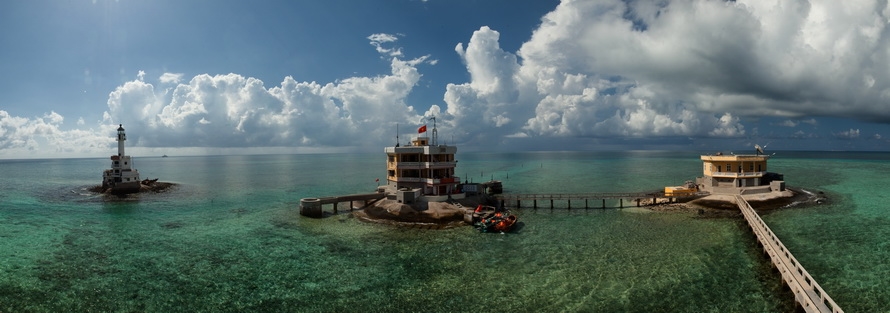
A lighthouse on Da Tay B island, Truong Sa island district, Khanh Hoa province. Photo: VNP
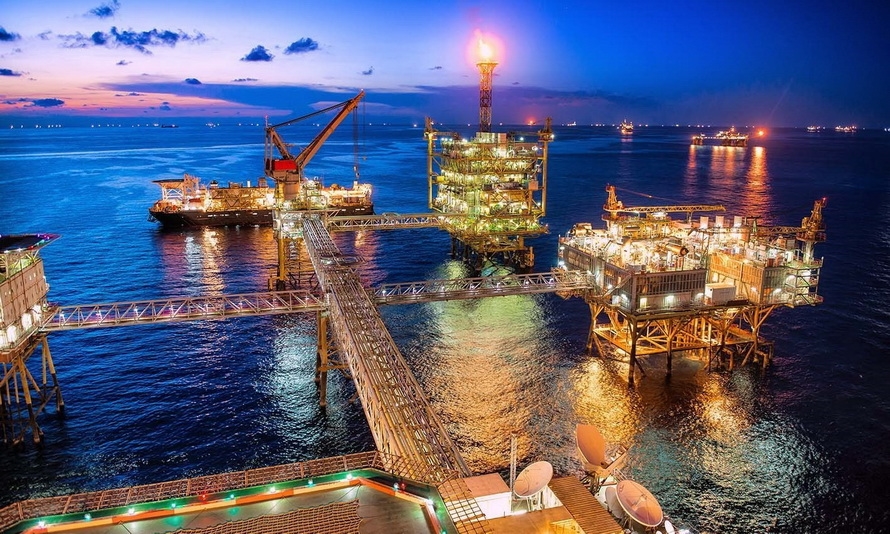 Bach Ho field. Photo: Tran Minh Son / VNA
Bach Ho field. Photo: Tran Minh Son / VNA
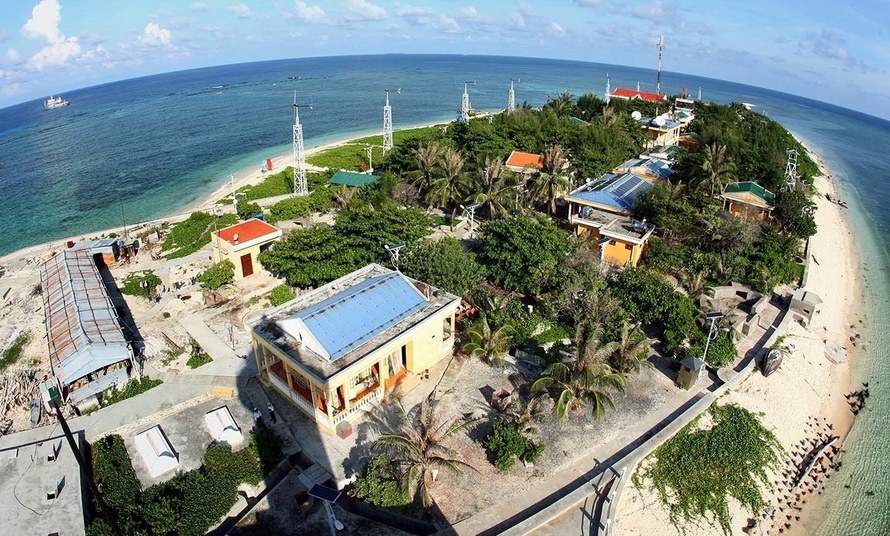 Son Ca island of the Truong Sa Archipelago. Photo: Huy Hung / VNA
Son Ca island of the Truong Sa Archipelago. Photo: Huy Hung / VNA
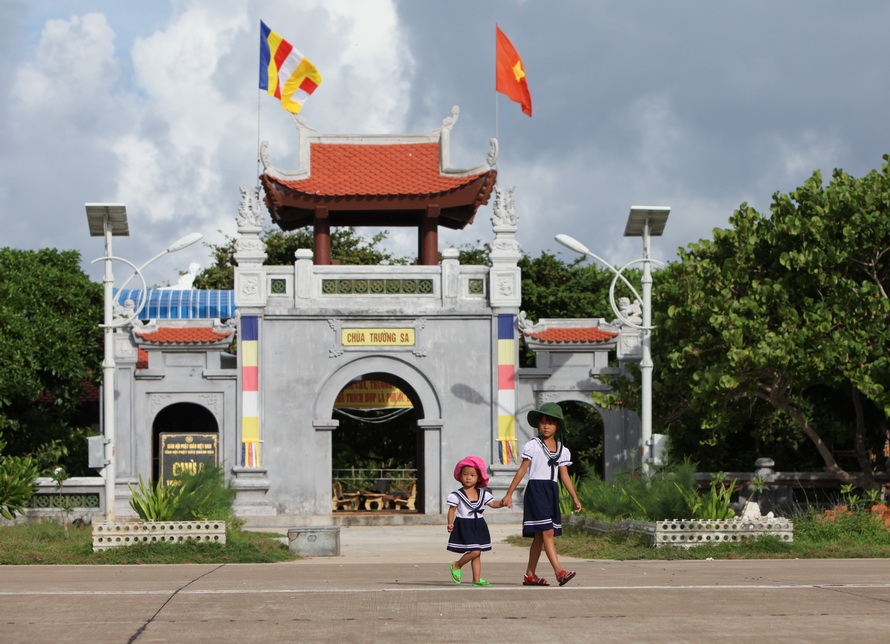 Truong Sa Lon pagoda on Truong Sa Lon island, Truong Sa island district. Photo: VNP
Truong Sa Lon pagoda on Truong Sa Lon island, Truong Sa island district. Photo: VNP
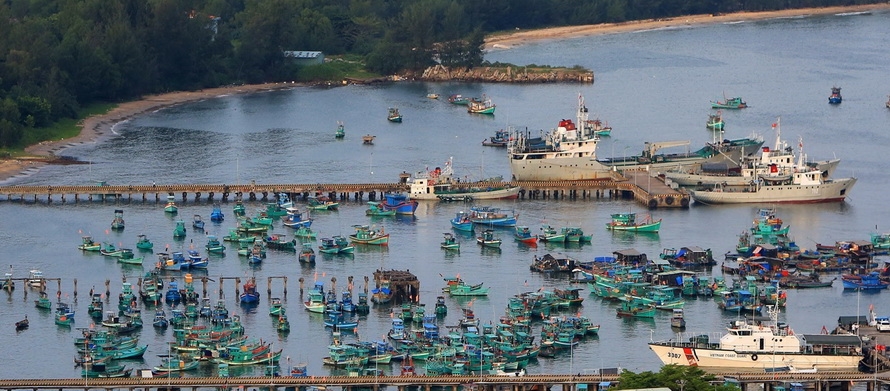 Boats dock at An Thoi port in southern Kien Giang's Phu Quoc island district. Photo: Ngoc Ha / VNA
Boats dock at An Thoi port in southern Kien Giang's Phu Quoc island district. Photo: Ngoc Ha / VNA
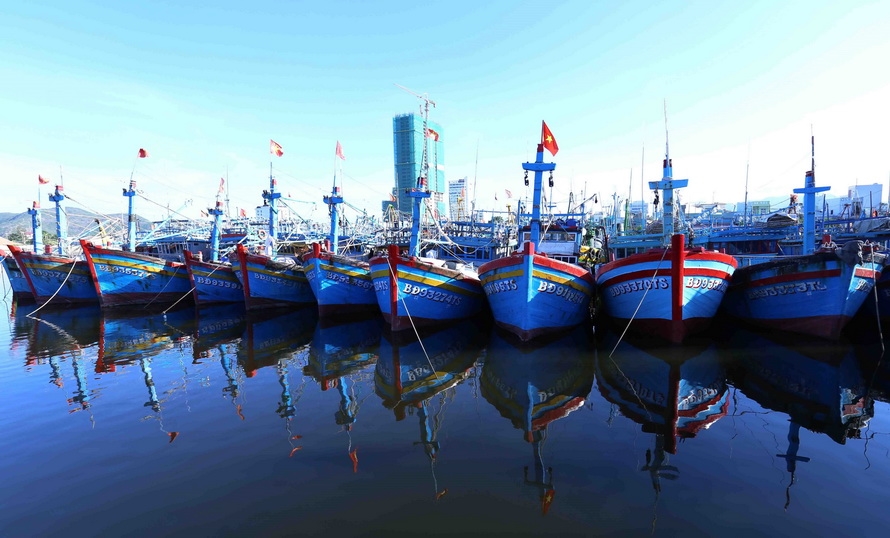 A fishing fleet of Binh Dinh fishermen moored at Quy Nhon port. Photo: Vu Sinh / VNA
A fishing fleet of Binh Dinh fishermen moored at Quy Nhon port. Photo: Vu Sinh / VNA
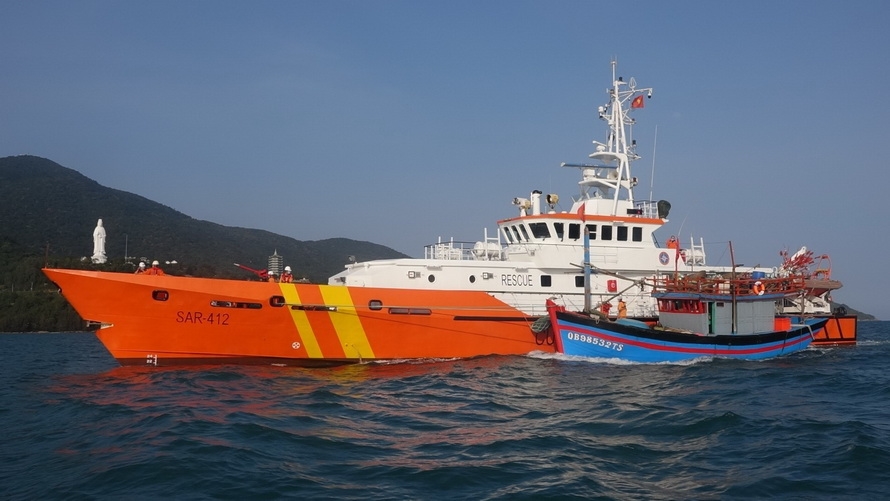 Ship SAR 412 under the Vietnam Maritime Search and Rescue Coordination Center
Ship SAR 412 under the Vietnam Maritime Search and Rescue Coordination Center
in February successfully saved trawler QB 98532TS with seven fishermen on board and took it ashore. Photo: VNA
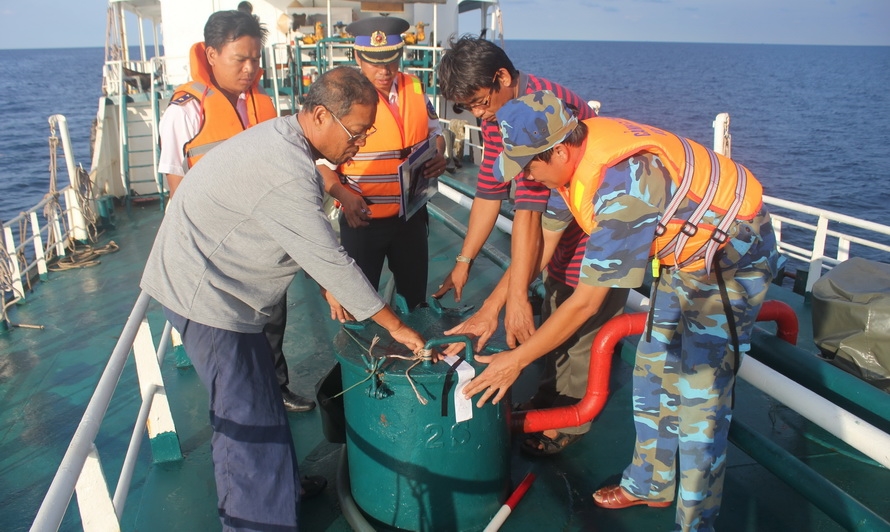 Coast guards of flotilla 402 under the 4th Regional Coast Guard seize and keep exhibits
Coast guards of flotilla 402 under the 4th Regional Coast Guard seize and keep exhibits
of a boat which illegally carries petrol in southwest sea area. Photo: Huynh The Anh / VNA
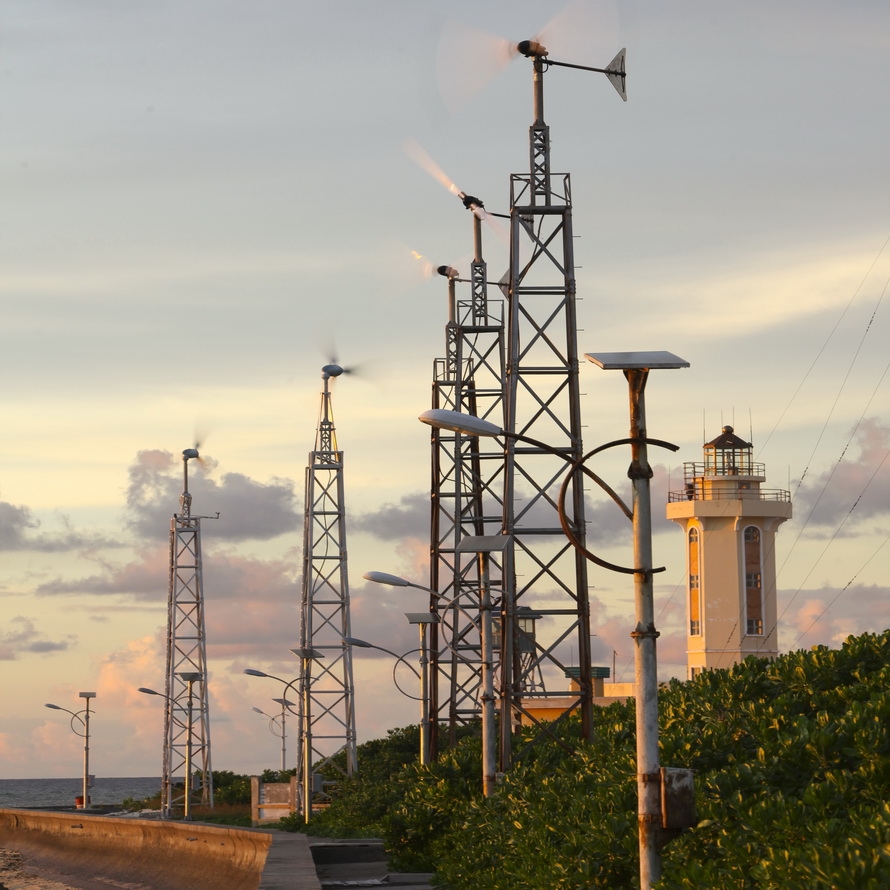 Using wind power in Truong Sa island district. Photo: VNP
Using wind power in Truong Sa island district. Photo: VNP
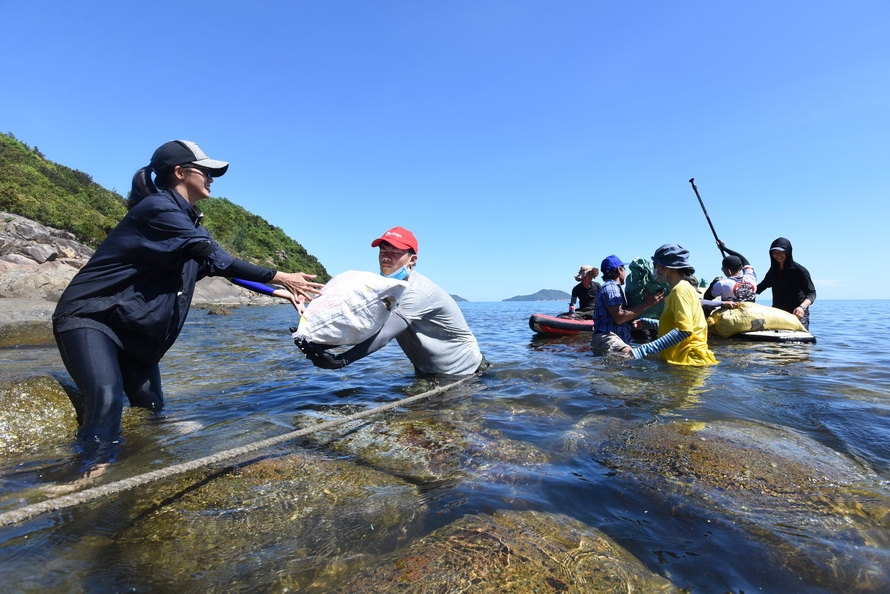 Collecting plastic waste on Da Nang’s coastal area. Photo: VNP
Collecting plastic waste on Da Nang’s coastal area. Photo: VNP
|
At the 9th ASEAN Maritime Forum (AMF-9) and the 7th Expanded ASEAN Maritime Forum (EAMF-7), ASEAN member countries approved many documents of cooperation at sea, including ASEAN leaders’ declaration on combating marine debris in the region, the Framework of Action on Marine Debris, the initiative on establishment of ASEAN Network for Combatting IUU Fishing, a proposal on the ASEAN general fisheries policy and the 2019 ASEAN Defense Ministers' Meeting Guidelines for Maritime Interaction. The ASEAN member countries have also conducted many activities to reinforce their trust, exchange experiences, and enhance the capacity for nations to enforce the laws at sea.
Deputy FM Dung said that over the last 25 years, Vietnam has respected the guidelines and objectives of the UNCLOS while making efforts to enforce the convention in the East Sea. It has handled sea-related differences by peaceful means in line with international law, including the UNCLOS.
Under this policy, Vietnam held negotiations and signed treaties on maritime delimitation with neighboring countries like Thailand, China and Indonesia. It also promotes talks on the delimitation of the sea area beyond the mouth of the Gulf of Tonkin with China, the delimitation of the exclusive economic zone with Indonesia, and the maritime delimitation with other neighbors.
Dung added that the country had stepped up maritime co-operation in a diverse and substantive manner so as to optimize the sea’s potential and deal with emerging challenges and create a peaceful and stable environment in the East Sea.
Regarding cooperation, Vietnam is willing to discuss and exchange ideas with other nations which are based on the UNCLOS and criterions of Sustainable Development Goal 14: Conserve and sustainably use the oceans, seas and marine resources for sustainable development, under the United Nations 2030 Agenda for Sustainable Development. Vietnam has maintained cooperation mechanisms for mutual development with coastal countries in the East Sea, such as cooperation on mineral resources in the overlapping continental shelf area with Malaysia and fishery and oil and gas cooperation with China in the Gulf of Tonkin.
|
Vietnam had aligned its legal system on the management and use of the sea, especially the 2012 Law of the Sea, in accordance with the UNCLOS. The 2012 Law of the Sea is an important legal basis for Vietnam to manage, protect and develop the ocean economy. |
By VNA/VNP